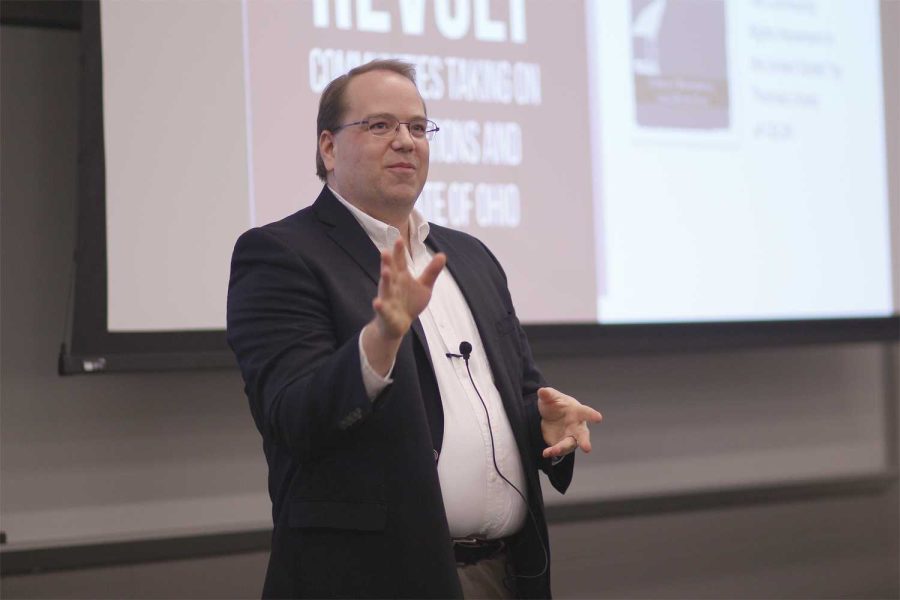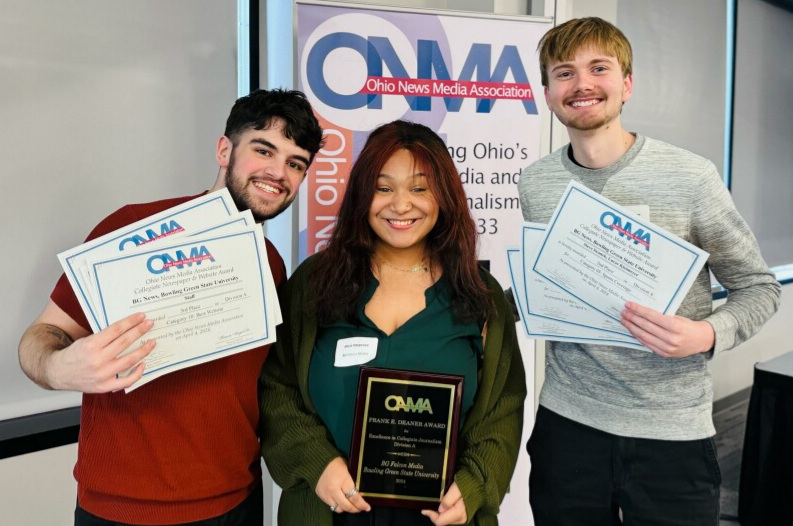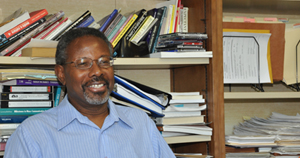In front of a crowd in Olscamp Hall on November 17, Thomas Linzey spoke about his ideal way to fight for environmental rights: revolt.
Linzey is the executive director of the Community Environmental Legal Defense Fund (CELDF), a law firm specializing in environmental law.
The CELDF began as a public interest law firm, but transformed into an organization focused on the “right to local self-government and the rights of nature,” according to the CELDF’s website.
At his presentation, Linzey discussed the obstacles communities across the United States faced when they tried to ban corporations from doing things like factory farming or fracking.
He described Ohio as a “hotspot” for this topic and said there were many communities willing to fight to keep detrimental corporations out of their areas.
Linzey and the CELDF team spent years fighting big corporations in court over missing signatures on permits and other loopholes to try and get the permits revoked.
But Linzey said this ultimately backfired as the corporations would take the problems the CELDF found, get the correct signatures and make their permits “bulletproof.”
“It’s like chess,” Lindsey said. “If you’re always on the defense, you’re always going to lose.”
Taking the fight to the big corporations, and sometimes going against the State, is what Linzey believed it would take for communities to get their rights recognized.
He described the topic as “difficult stuff [that] really shouldn’t be that difficult at all.”
“Your governmental system is supposed to protect your health, safety and welfare,” said Linzey, “but a lot of us…are actually finding out that the system is not catered to assist you.”
In some cases the CELDF handled, the state government actually made it a criminal act for communities to ban corporations from moving into their area.
However, big corporations are often the entities who make the corporate regulations.
If a community creates an ordinance banning a corporation from developing in their area, the corporation would go to the state government to create regulations for the communities.
“There is a hand behind the State, and the State is being used to put these regulatory structures in place,” said Linzey.
Corporations have constitutional rights similar to a person’s constitutional rights and this obstacle prevents communities from passing ordinances to ban corporations from moving into a community.
Linzey joked that a corporation suing a community is similar to a fridge suing its owner, that a corporation should not have the same constitutional rights as human beings because they are different.
“We forget in the United States sometimes, I think, that corporations became persons 40 years before women became persons,” said Linzey.
Bob Vincent, a former geology professor as the University, attended Linzey’s presentation and said he “came here to learn what this was about.”
Vincent said he felt environmental degradation had not been taken seriously and this is something Linzey hoped to change.
Even though the odds have not always been in his favor, Linzey said he proud CELDF exists.
“In the face of the major corporate players that we go up against, that we still exist after 15 years, 20 years…I think that’s the most important thing,” said Linzey.




















